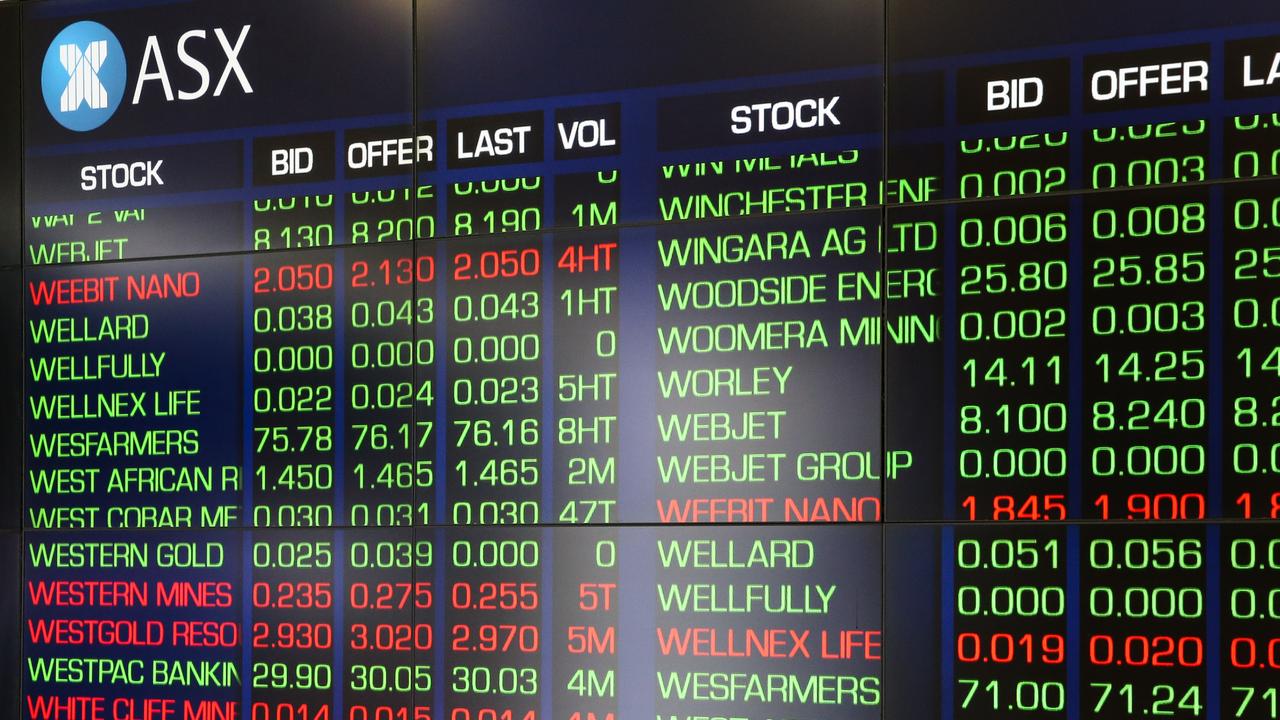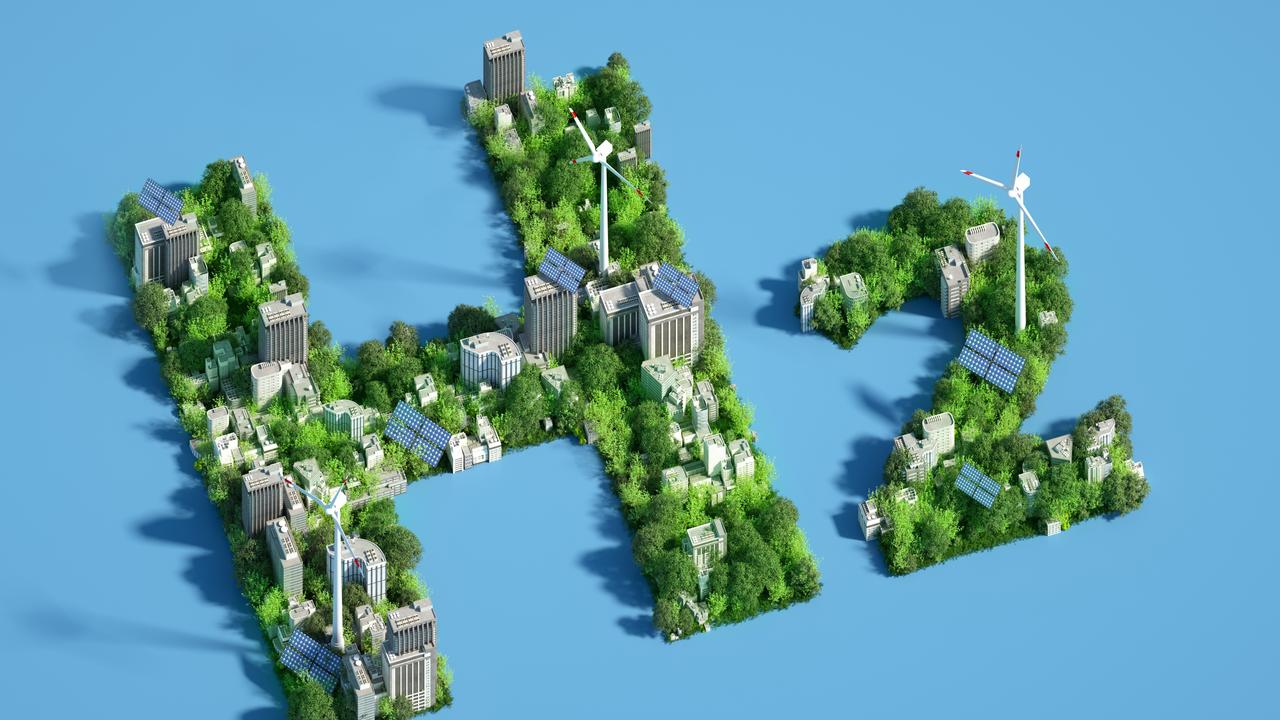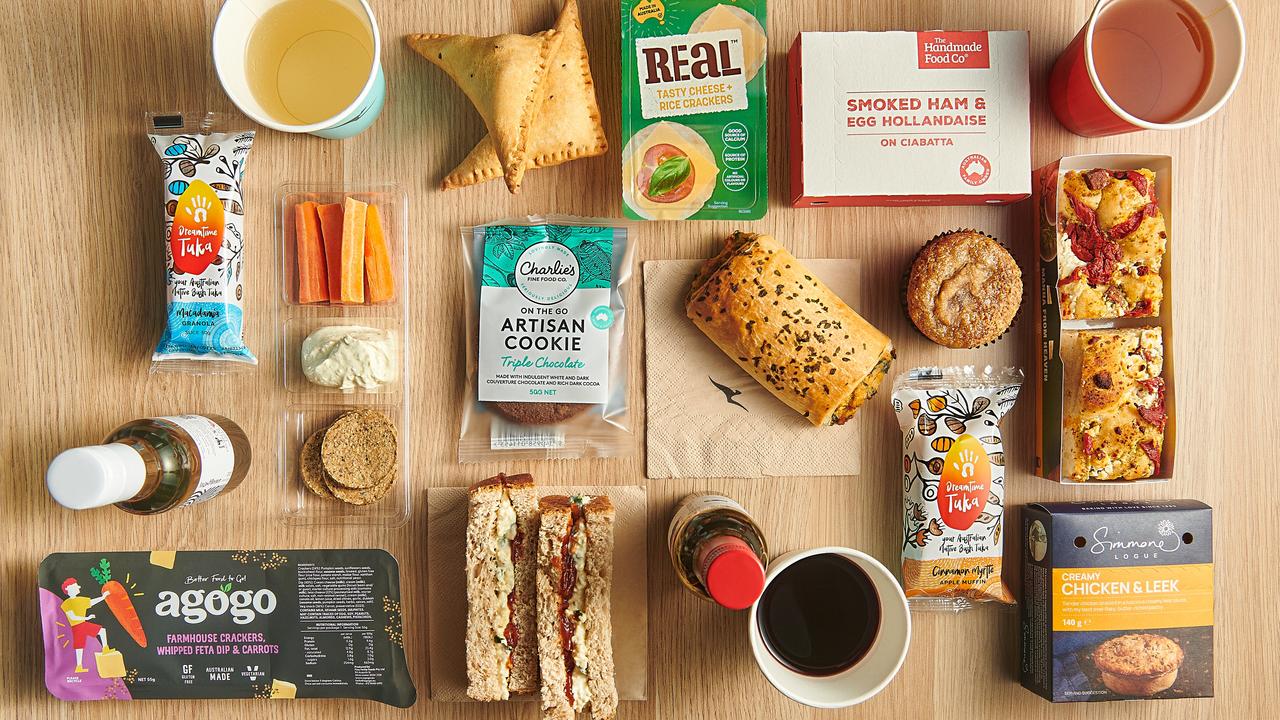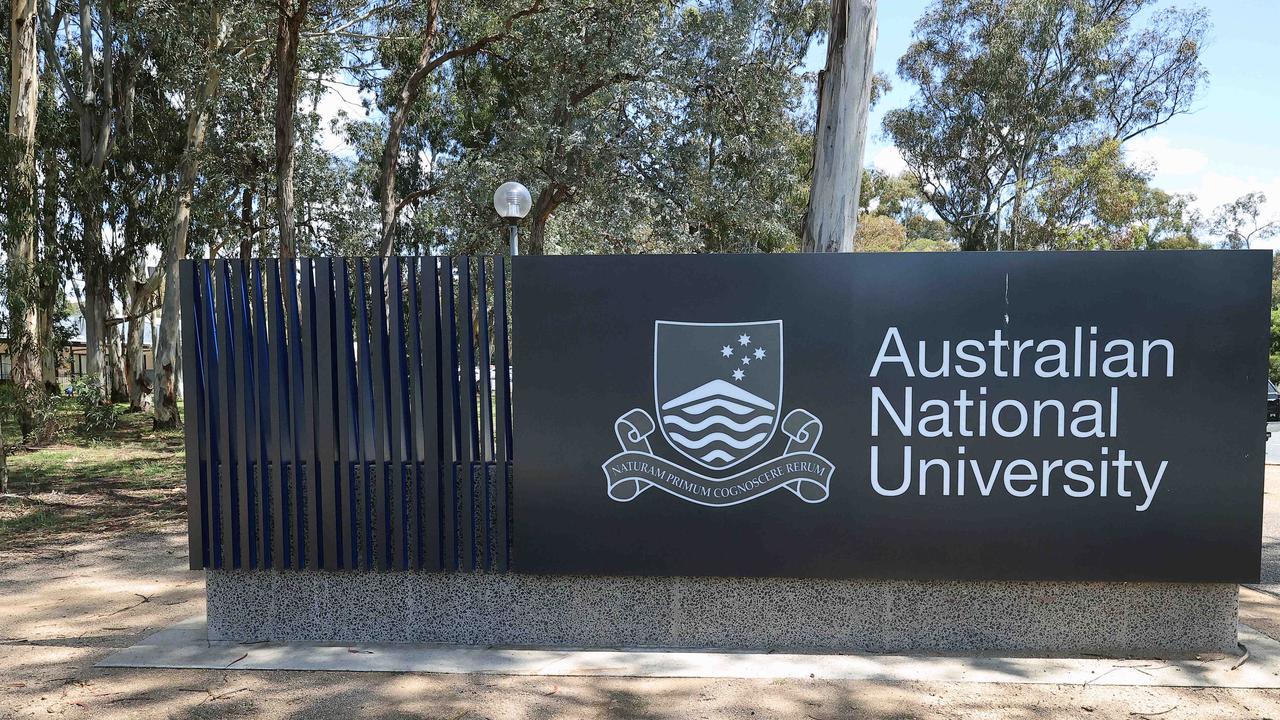Why red billboard could ruin 400 families
Red billboards popped up in some of Australia’s busiest locations earlier this year with a four-word slogan. Here’s why they could cost 400 families absolutely everything.
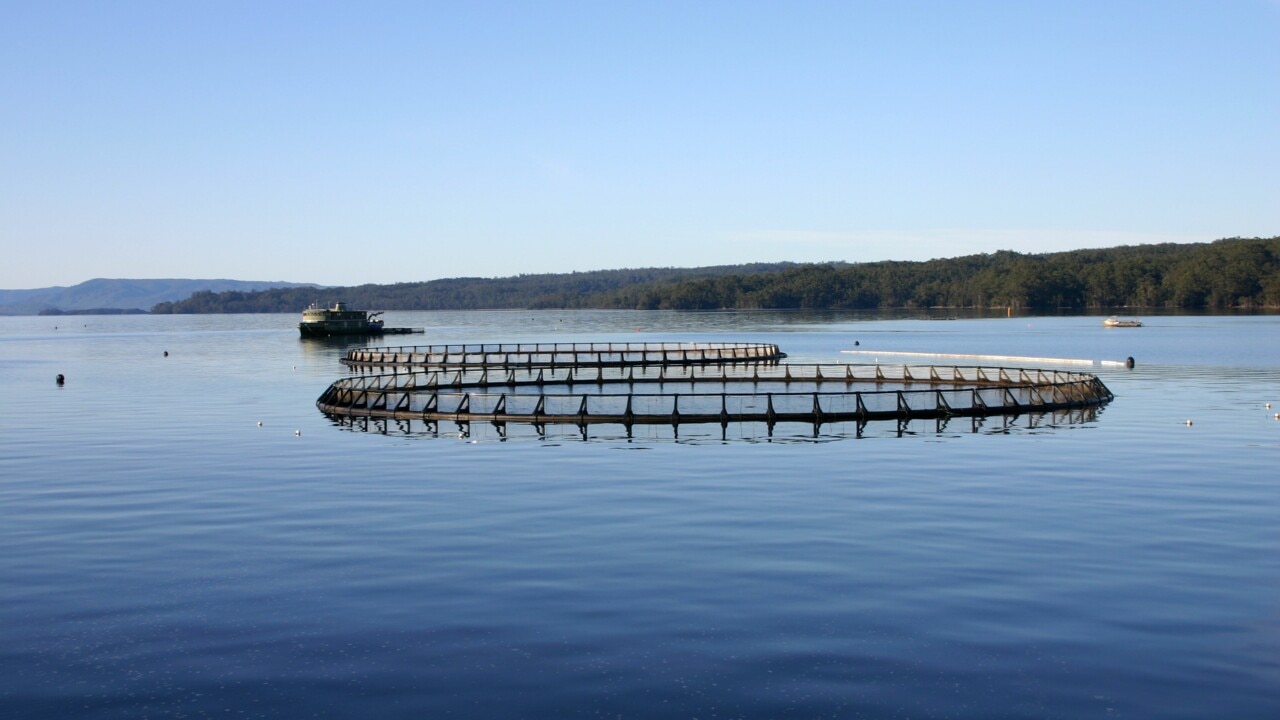
Companies
Don't miss out on the headlines from Companies. Followed categories will be added to My News.
Strahan is a close-knit town on Tasmania’s rugged west coast at the “end of the world”.
It has one school, a pub, post office and a humble theatre company which lays claim to Australia’s longest running play.
The isolated town also stares out at Hells Gates – a notoriously dangerous channel at the mouth of Macquarie Harbour – where many of its 700-odd residents are employed as salmon farmers.
But the livelihoods of 400 families are at risk as environmentalists and politicians threaten to tear the industry apart.
At the centre of the battle is the Maugean skate, an ancient ray that was only discovered in 1988 but is at risk of extinction with an estimated 40 to 120 left in the wild.
Environmentalists say salmon farming in the area has reduced dissolved oxygen levels in the water to a point the skates – dubbed the “Tasmanian tigers of the sea” - are unable to survive.
Now, a powerful activist group acting on behalf of 121 Woolworths shareholders has called on the supermarket chain to stop sourcing salmon farmed in Macquarie Harbour.
A looming shareholder resolution at Woolworths’ annual general meeting on October 31 could sound the death knell for a community dependent on salmon farming to survive.
Meanwhile, Environment Minister Tanya Plibersek is awaiting a crucial new review as she considers a potential shutdown of the state’s $1.3 billion salmon industry.
“I will make a decision in accordance with the law and the science, as I’m required to do,” Ms Plibersek told AAP this week.
But Salmon Tasmania CEO Luke Martin has argued there is “no scientific evidence” that proves removing farming in the region would guarantee the survival of the skate.
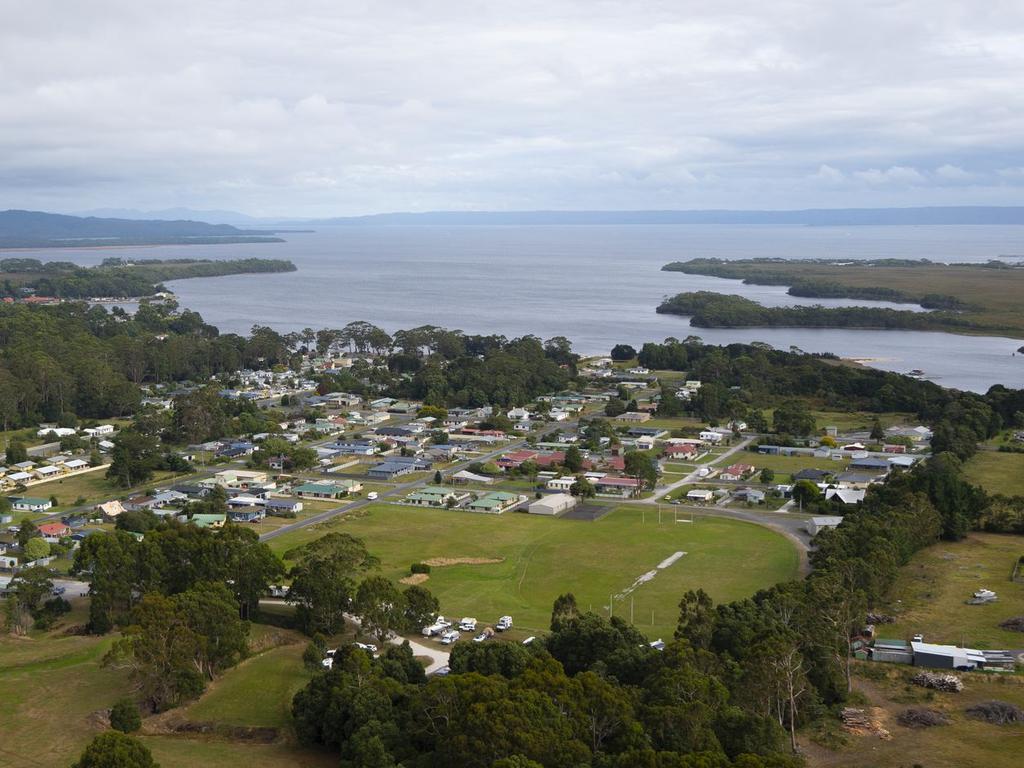
Tanya Plibersek’s $1.3 billion decision
Salmon farming has been permitted in Macquarie Harbour since 2012, when the federal government approved an expansion of fish farming in the area.
There are three foreign-owned producers that run 11 farming leases in Macquarie Harbour and collectively supply 90 per cent of the nation’s Atlantic salmon.
In November 2023, Ms Plibersek launched an official review of the environmental permits that allowed them to operate.
The latest advice from a government committee found the salmon industry posed a “catastrophic risk” to the survival of the skate.
“The primary threat to the species is degraded water quality, in particular, substantially reduced levels of dissolved oxygen throughout Macquarie Harbour,” the committee said.
It recommended that action be taken to “eliminate or significantly reduce the impacts of salmonid aquaculture on dissolved oxygen concentrations”.
“The fastest and simplest way to achieve this is by significantly reducing fish biomass and feeding rates,” it said.
Tasmania’s salmon industry is worth an estimated $1.3 billion and employs around 5,000 people across the state - with almost all of those jobs in regional communities.
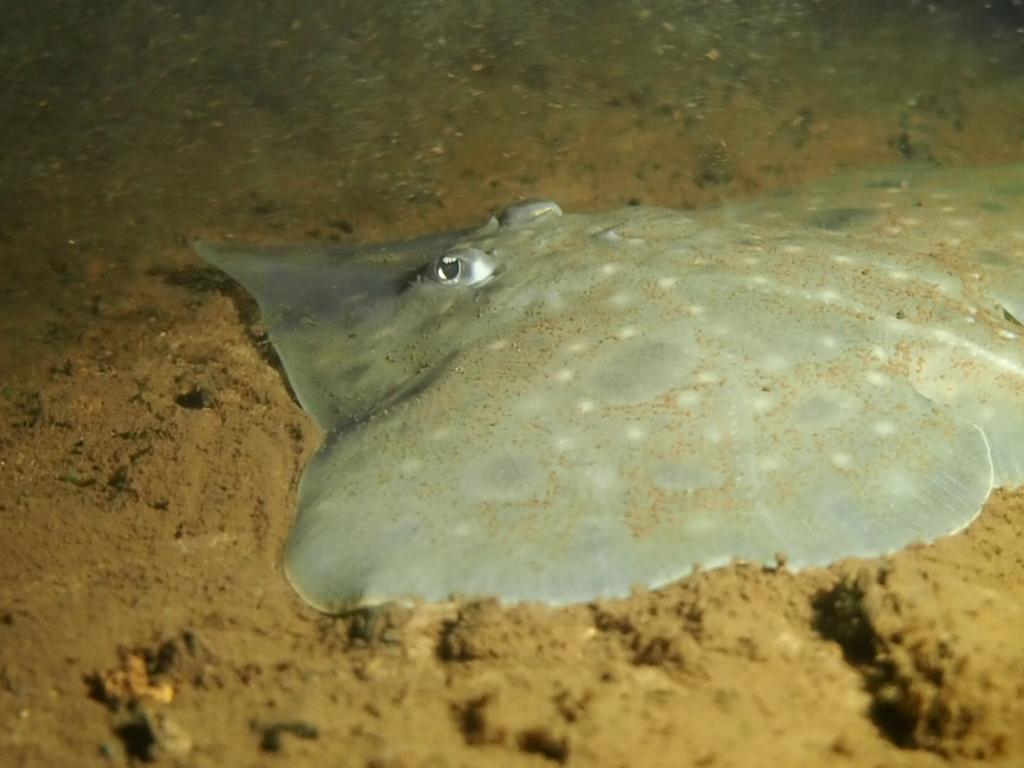
‘Influenced by industry’: Scientist hits back
University of Tasmania conservation ecologist Barry Brook was commissioned by Salmon Tasmania to take a look at projections of the skate’s rapid population decline.
He said the projections – which claimed the species could go extinct within two decades - were “overly pessimistic” and suggested a more “robust” assessment was needed.
In response, last week Tasmania’s Environment Minister Nick Duigan announced a new review.
“Professor Brook’s analysis raises questions in relation to the modelling used to inform current population assumptions for the skate,” he said.
“The report ... is yet further evidence there are many differing views in relation to the skate and its population viability.
“It is critically important to understand the status and trajectory of the skate population to inform our conservation efforts.”
Greens MP Dr Rosalie Woodruff was scathing in her critique of Professor Brook.
“Is it any wonder a so-called ‘review’, paid for by Salmon Tasmania, has tried to cast doubt on the impact salmon farming is having on the Maugean Skate in Macquarie Harbour? Of course not,” she said.
Australia Institute Tasmania director Eloise Carr was also quick to dismiss the ecologist’s review.
“It’s a move straight out of the fossil fuel industry playbook: cast doubt on the science, confuse the issue and the result is to delay stronger regulation of a harmful industry,” she said.
Professor Brook hit back at the criticism, telling news.com.au he had worked his entire career on “understanding and preventing extinctions” and was the editor-in-chief of the Cambridge University Press journal “Extinction”.
“I’m hardly the sort of person who would be influenced by industry or politics on this issue,” he said.
He said the fact he was commissioned by Salmon Tasmania had no bearing on his advice to the government.
“This is akin to paying to consulting a solicitor on a legal matter, and then someone arguing that this advice was inadmissible because the solicitor charged a fee for their time.”
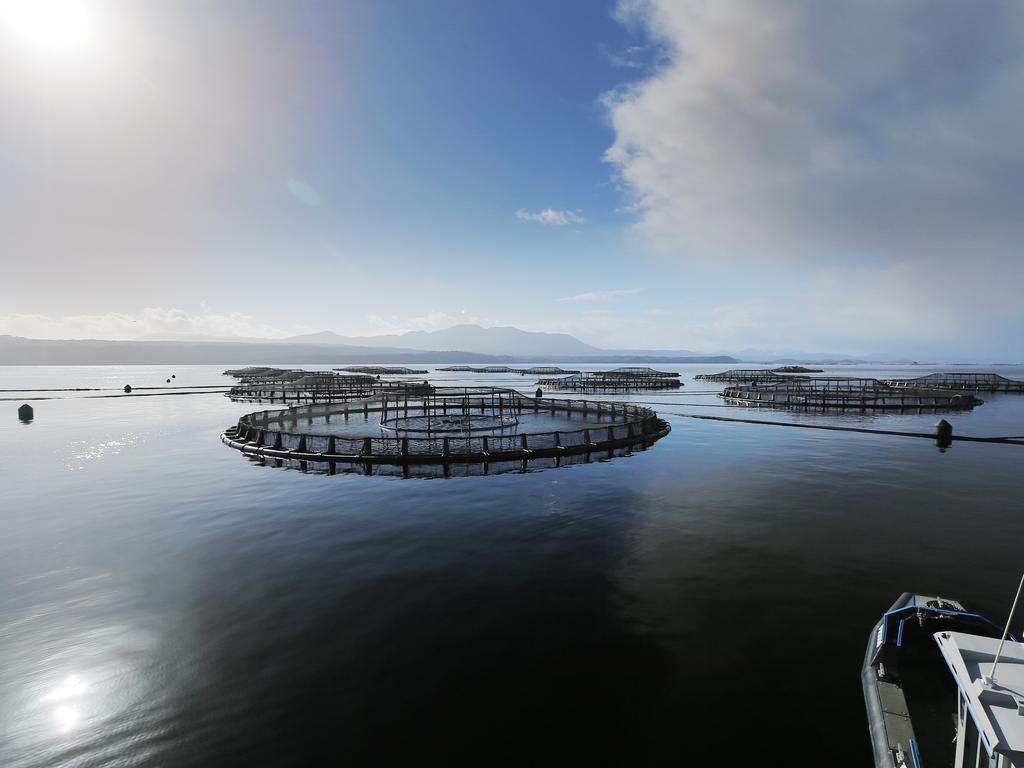
Woolies and Coles face D-Day
Activist share trading platform Sustainable Investment Exchange (SIX) has called on Australia’s biggest supermarket chains to stop sourcing all salmon farmed in Macquarie Harbour.
In a showdown set to take place at Woolies’ next AGM on October 31, shareholders will be asked to vote on the issue “and give the Maugean skate its only chance at survival”.
“It’s astonishing a company that promotes itself as a leader in sustainability needs its shareholders to step in to stop a likely extinction event,” SIX CEO Adam Verwey said.
“Given the urgency of the situation with the Maugean skate, we thought this would be something Woolworths would agree to act on without the need for a shareholder resolution.
“To stop contributing to an extinction requires changing just a small part of their salmon supply.”
The group has also lodged a shareholder resolution with Coles, which will be heard at its AGM on November 12.
Salmon Tasmania boss Luke Martin slammed the “faceless activists”.
“We have learned they just don’t care about the Tasmanian lives and communities these stunts affect,” he told The Mercury.
“As an industry, we are very confident in the science and regulatory framework underpinning our operations in Macquarie Harbour and the 395 jobs it sustains across regional Tasmania.
“We are also proud of the investments we have made into critical research on the Maugean Skate and in now trialling world-leading oxygenation technology in the harbour.
“None of this would be occurring without the industry’s presence in the harbour.”
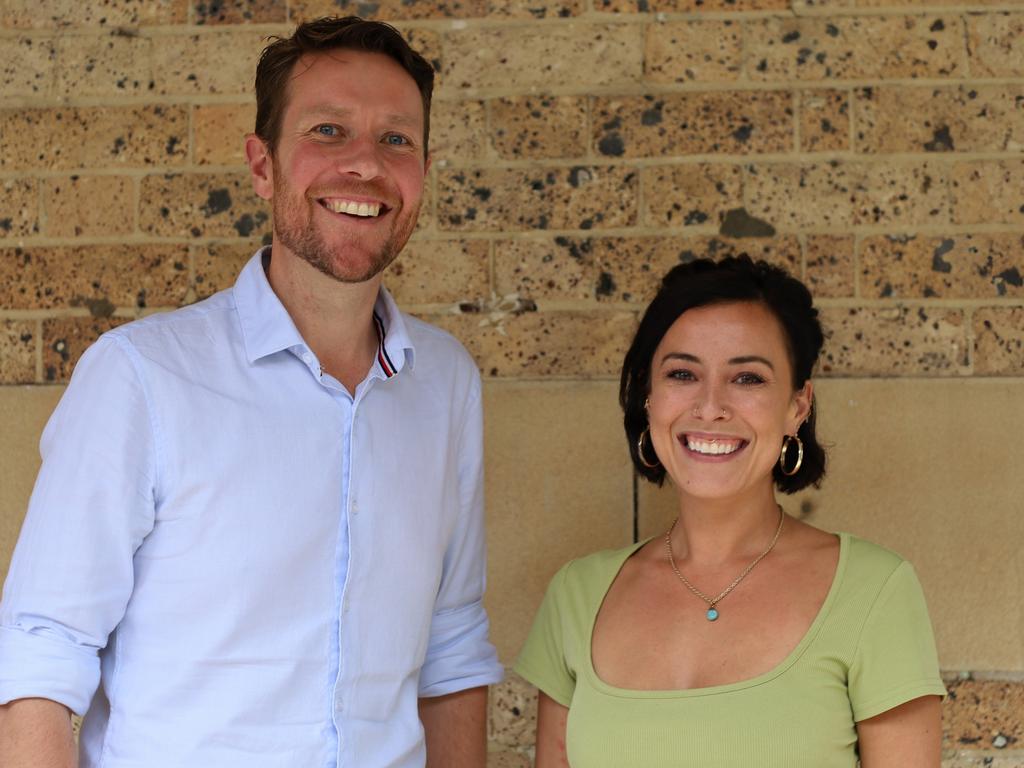
A tiny town teetering on the edge
More than half the students in Strahan’s Primary School this year come from families employed in the salmon aquaculture industry.
Tasmania Salmon says 120 people (60 Strahan locals and 60 from other parts of Tasmania) are employed full-time on Macquarie Harbour.
A further 140 people are employed for admin and processing work associated with the big fish farms, and another 140 work in manufacturing and logistics roles linked to the industry.
Adam Saltmarsh, who works for salmon farming giant Tassal, spoke about the “catastrophic” impact any stoppage of the industry would have on the community.
“If this industry was to be scaled back, it would affect the community a lot, the flow on effects for the schools, local sporting groups, doctors, the nurses,” he told SkyNews.com.au late last year.
“We take pride in what we do, it’s our backyard, our life is revolved around this body of water. It’s not an inland town, it’s a harbour side town and without the industry on the harbour, there is no town.
“It would be catastrophic if we had to give this up.”
His 12-year-old son Logan is so passionate about staying in Strahan he has written a letter to Ms Plibersek.
“Imagine living in beautiful Strahan, your hometown, and then your parents’ jobs in the fish farm industry are lost and you have to move to a new, scary place you’ve never been to,” Logan wrote, The Australian reported.
“If you shut the industry down, you will be forcing many innocent families to flee the town to keep their families afloat.”
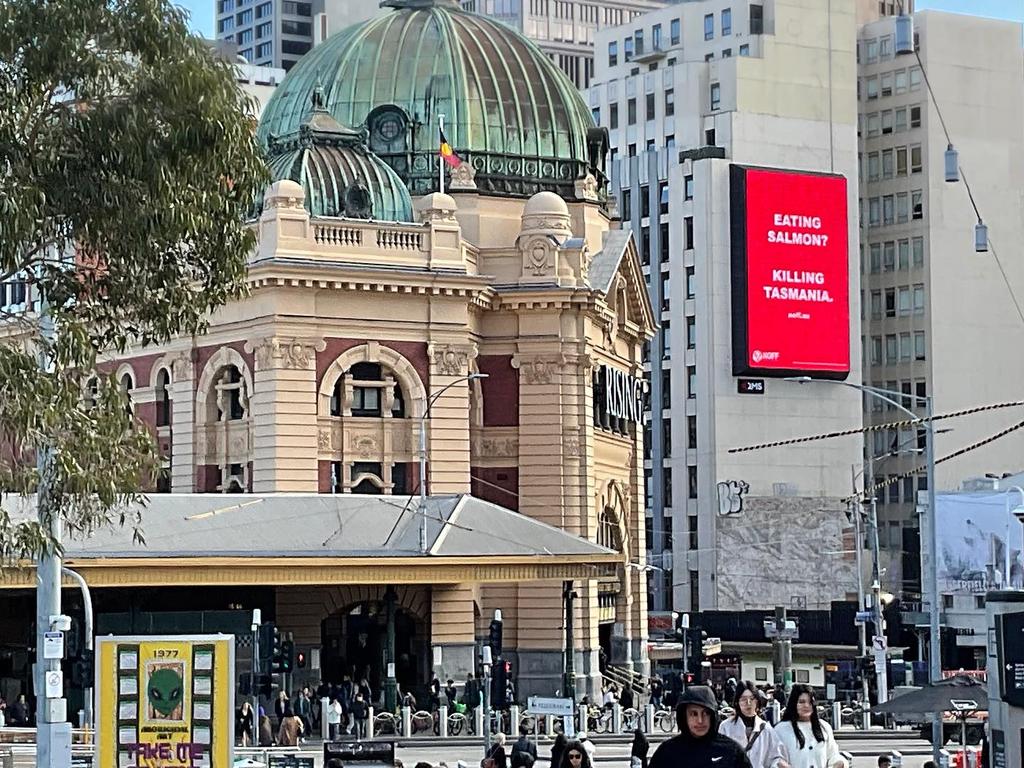
‘Killing Tasmania’: Billboards in capital cities
Towering billboards featuring the slogan “Eating Salmon? Killing Tasmania” popped up in Sydney, Melbourne and regional Victoria earlier this year
The illuminated adverts – displayed on 13m by 4m billboards – were the work of Aussie activist group Neighbours of Fish Farming (NOFF).
“The latest scientific advice on Macquarie Harbour could not be clearer and it’s time that Salmon Tasmania and its foreign owners faced up to their responsibilities.” NOFF President Peter George said last month.
Mr George rubbished a recent trip a delegation of local politicians and industry leaders took to Canberra in a bid to convince Ms Plibersek to keep Tassie’s fish farms alive.
“Their plans to take a West Coast workers delegation to Canberra amount to no more than one more hollow attempt to bully politicians not to act in Tasmania’s greater interests which is protecting our unique natural resources from industrial destruction.
“They’d achieve more by approaching Federal and State governments for assistance in funding a long-overdue transition away from the salmon industry to sustainable employment in sustainable industries - industries that might well include land-based fish production or alternate forms of aquaculture that do not inflict damage on the waterway.”
Originally published as Why red billboard could ruin 400 families




